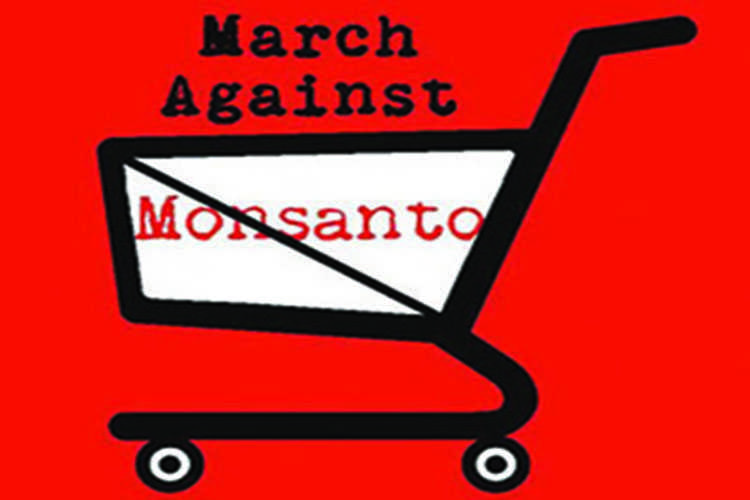Organic food movement represented locally
October 16, 2013
Tami Canal was angry driving home after an expensive trip to the grocery store.
Canal, of Salt Lake City, Utah, buys only organic, but was shocked at how much it costs to feed her two young kids. So she channeled her anger into Facebook, creating a page against the seed company Monsanto.
In the last five months, her page March Against Monsanto has racked up over 200,000 likes and has sparked organized protests in cities across the globe.
Last Saturday, protesters gathered in 400 cities and six countries for March Against Monsanto. Eau Claire joined too. Marchers set up at Phoenix Park in downtown Eau Claire to protest and promote local food.
“Eating organic isn’t easy, cheap or convenient,” Canal said. “We encourage people to grow their own food. It’s basically a campaign of awareness since our government won’t allow labeling on food.”
Marchers chiefly protest Genetically Modified Organisms and other methods of making hybrid food, along with the seed manufacturer Monsanto, Canal said.
Scientists combine the DNA of a fish, for example, with a seed to make the seed more resistant to pests, diseases or other ailments that might affect crop production. The seed is then sold as a GMO seed.
But Canal said laws don’t require companies to label GMO food, which is dangerous because GMOs have been linked to cancer and other diseases.
Debbie Koteras owns Mother Nature’s Foods, an organic grocery store in Eau Claire. She was out of town during the March Against Monsanto Saturday, but said she would have been at the rally if she wasn’t away.
Mother Nature’s has been in business for 40 years, with Koteras at the helm since 2000. She said part of the store’s goal is to educate people about dangers of mass produced food.
Koteras said she requires companies to tell her if their product contain GMOs. If they do, she won’t carry it or she’ll label products herself.
“I want us to remain healthy,” Koteras said. “I want the stalk of corn that I ate when I was growing up to be the same for my kids.”
Koteras said her store’s role isn’t just to provide an organic option, it’s to educate people about the risks of hybrid food. She hung posters for March Against Monsanto in her shop and distributes flyers promoting healthy eating.
Casey Malan, a senior UW-Eau Claire English major, said he would like to be able to eat organic food, but he doesn’t.
“Usually I just eat TV dinners, frozen pizza, stuff that’s cheap and easy,” Malan said. “I’m in a nutrition class now, and they always make me feel bad about eating unhealthy.”
Malan said he’s sometimes able to buy beef directly from his friends who live on farms. After writing a research paper on chemicals found in beef, he’s more wary of store-bought meat.
“The chemicals they put in food does concern me, but not enough to pay more for groceries,” Malan said. “If organic food was cheaper and easier to get, I would definitely eat it.”
Koteras said although price and convenience are obstacles for many people, it’s important for people to protect themselves from diseases caused by eating hybrid food.
“Part of our goal is to try and get people to take one step at a time,” Koteras said. “Talk with your neighbor and buy half a cow directly from a farmer. Make smart choices. Eating junk leads to so many issues.”

